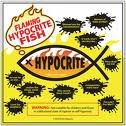In the final section of Fanon, we hear once more from John Wideman's brother, this time about his philosophies on life. Rob's view of things is that all people are the same. We all want the same things in life and any other view only over complicates things. He comments, "We's all one person, all the same body. Fuck color and countries and religion...that's all bullshit. Seems like a lotta us, but we's all the same one, doing the same thing" (176). Rob Wideman does have a point in that we are all human and we all, in essence do want happiness in life. This is kind of a broad view of things, but is also true. He goes on to talk about how this means that when we commit acts of violence, we are only hurting ourselves. Rob states, "That's what this world situation's about. What this terrorism shit's about. One hand trying to outhurt the other. Stone confusion. People scared of their own damn selves. We done forgot we the same person" (177). The pointlessness of terror and violence is well summed up in this statement. When we seek to hurt others, often we really only end up hurting ourselves and having more problems then we started with.
In my first post, I talked about how the fictitous author of this book, Thomas, recieved a severed head in the mail and only now do we find what became of it. Thomas had once written a story involving a severed head and thought the ending he devised for it would be appropriate. He rationalizes, "Why not recycle a good thing. Thomas had invented the ending, the boy, the head. They belonged to him. Couldn't he do with them as he pleased. Off with the head" (184). Thomas realizes how similar his situation is to the one he created, showing how cyclical life is and how true it is that what goes around comes around. After throwing the head into the Thames, Thomas reflects on how this act relates to writing and to life. He thinks, "You are who you are, Thomas, until you think you are not. So what. Let it go. Heave-ho. Splash. That's what happens to the head. An ending, if an ending's needed. As good as any other" (187). It is in this manner that Thomas ends his dialogue in the story, by comtemplating the mysterious workings of life. And so I find an ending for myself as well, by finishing my last blog post.
skip to main |
skip to sidebar

This page is possibly the most awesomely cool EE10 blog ever made by any single person named Vivian Ha.
Link and Ike Caramelldansen


4 comments:
First things first.. congrats on finishing this book! I know it's been really confusing for you, but your analysis is great nonetheless. I really like that first quote you discussed. It's such a simple statement, yet it's the truth and sums up most of human life and conflicts. We are all essentially the same thing, and yet barriers such as relgion divide us.
Even though I don't know very much about the character of John Wideman's brother, I will go ahead and make the assumption that he lacks education. With that said, while many people believe those who aren't educated have the inability to reason or to make meaningful points, they are wrong. Wideman makes an interesting point, that we're all the same, seeking the same thing. While there are differences among people, we are essentially the same. We all, like you said, seek happiness.
This book does seem very confusing but good job I agree with Lida that your anaylisis of it was very well done! It's a very interesting thought that your quote describes. Personally I do think that all people are working toward the goal of happiness, but I don't think it's as black and white as the quote describes.
I guess I agree in a way with John Wideman's brother. We are all basically the same. We all go through a lot of the same stuff. Even the term "race" was just created as a way for Europeans to say that they were better than everyone else (don't believe me, look it up). I wonder if more people thought like he did, if there would be a lot less conflict in the world.
Post a Comment